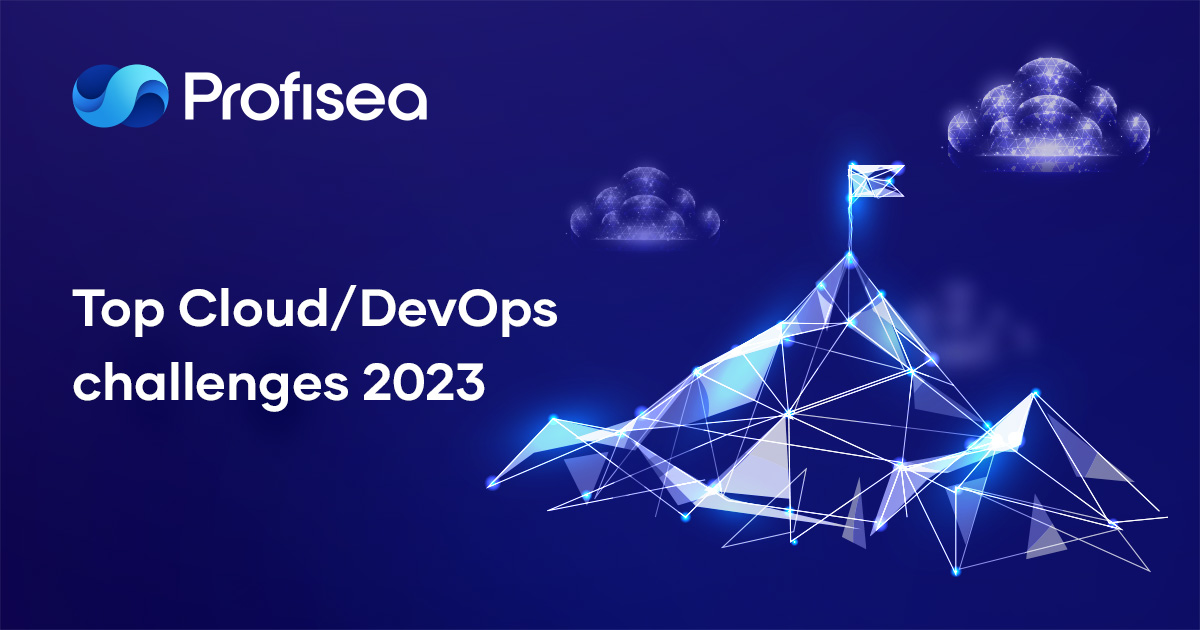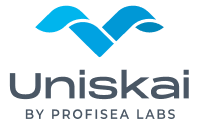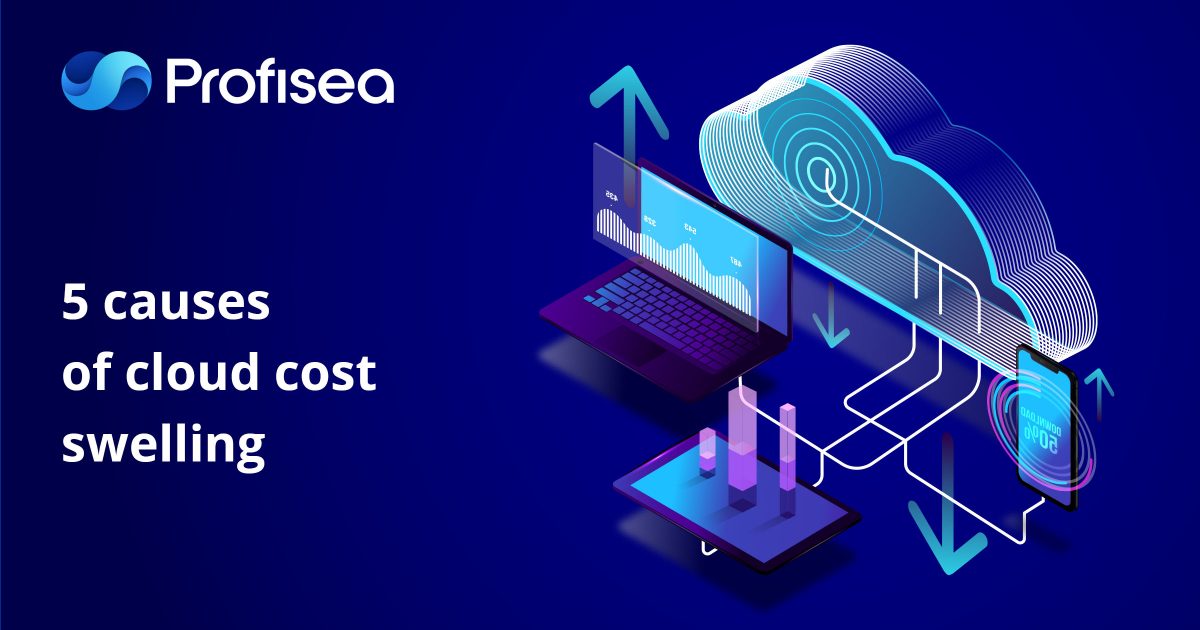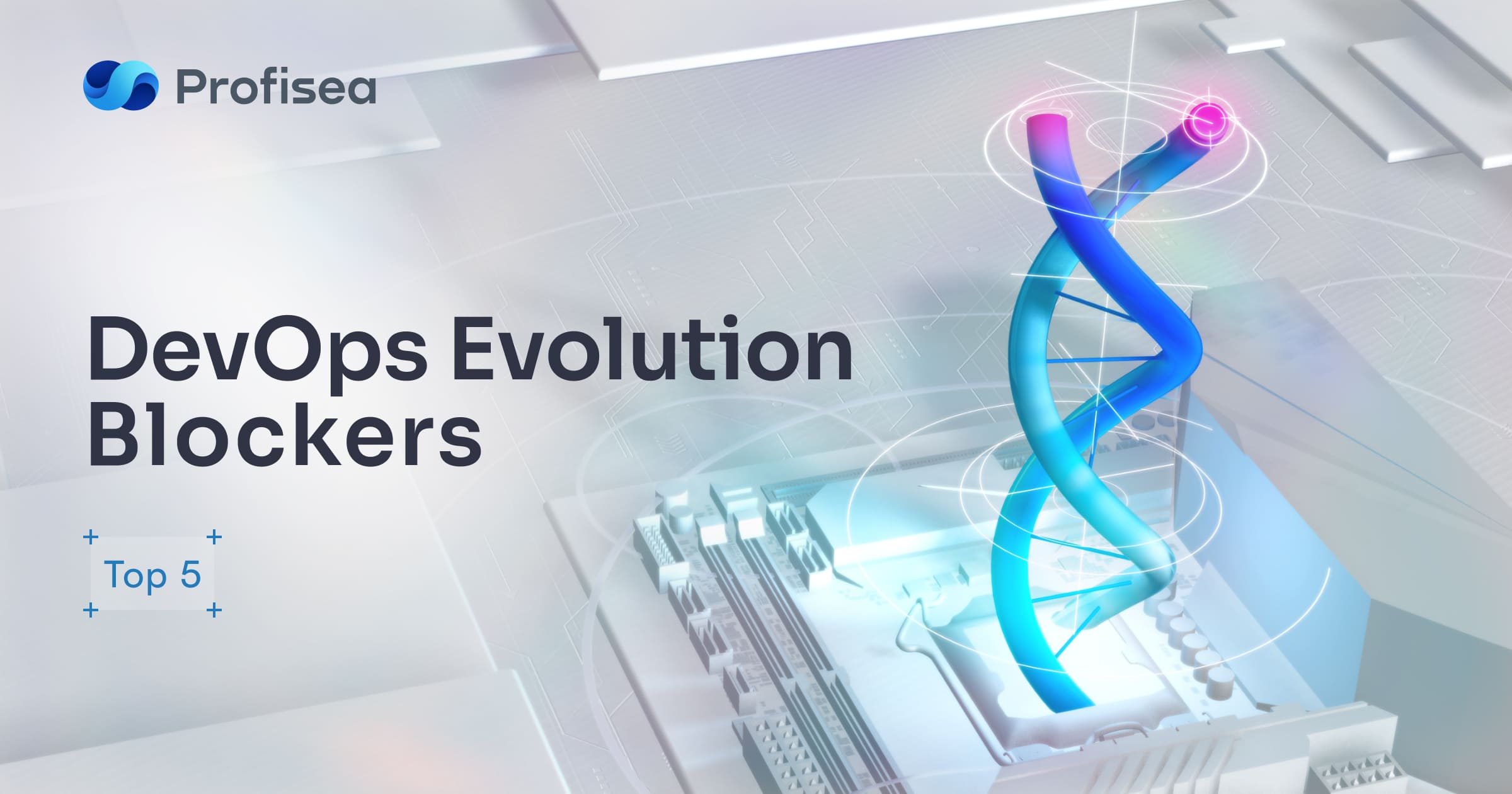Top Cloud/DevOps Challenges 2023: Forewarned is Forearmed
Last year the global Cloud computing market was valued at nearly USD 370 billion. It will grow to an estimated USD 1026 billion by 2028, with a CAGR of approximately 16% between 2022 and 2030. The DevOps market size is predicted to reach USD 37 million by 2030, with a CAGR of 20%. Undoubtedly, moving to the Cloud brings enormous opportunities, efficiency, and convenience. But it also exposes any company to a new range of challenges. So, you should know about the eight biggest Cloud/DevOps challenges in 2023. As successful people say, forewarned means forearmed!
Bring Artificial Intelligence and Machine Learning in SDLC
Artificial Intelligence (AI) and Machine Learning (ML) will keep optimizing and accelerating each phase of the SDLC. AIOps and MLOps are expected to be USD 41 billion entities by 2026.
Optimizing SDLC processes with AI and ML is essential to get the benefits of rapid, high-quality releases. AIOps help you automate IT operations and processes, while MLOps standardizes machine learning system development. So, AIOps identify the root cause of any problem that hinders productivity; MLOps help your business streamline processes and improve productivity.
Only professionally configured integrations make AI and ML proactively explore the DevOps pipeline to identify issues and propose possible solutions, enabling deep learning, data analysis, statistics, and modeling to become an integral part of your business workflow.
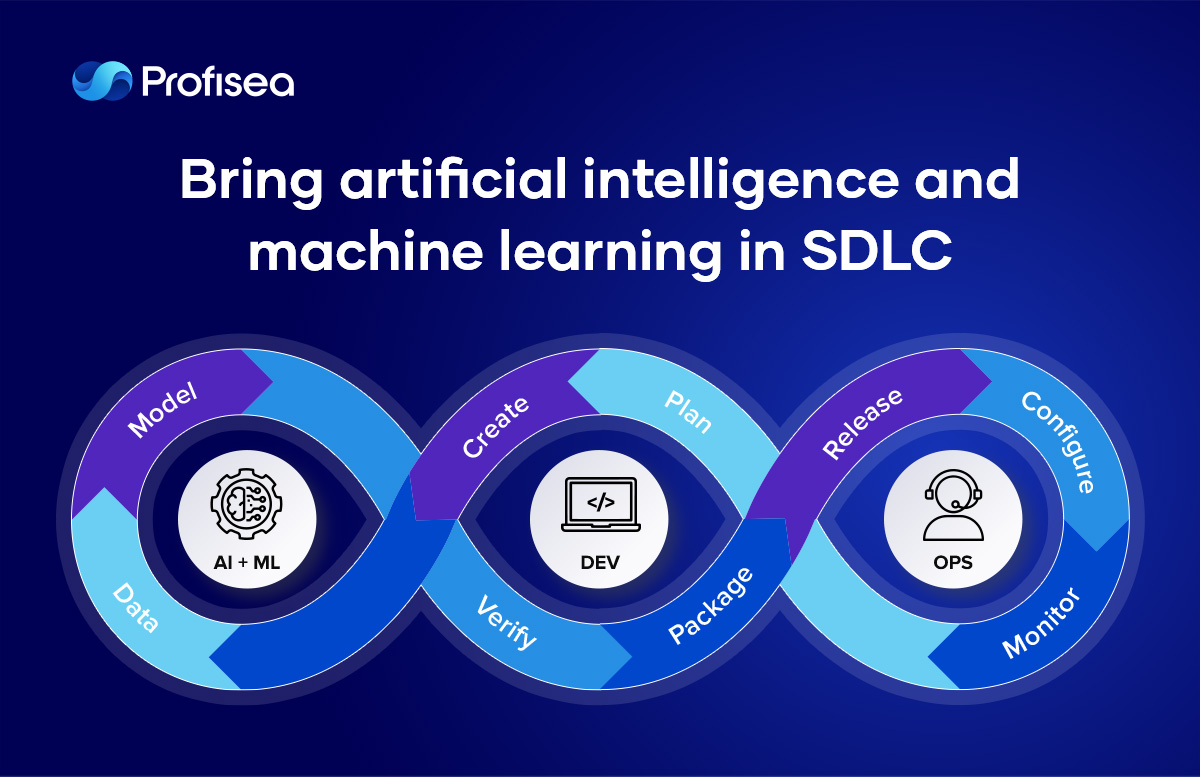
Experience Multi-cloud Solutions
2023 is the year of diversification of services among a wide range of Cloud providers. Multi-cloud solutions offer benefits, including improved flexibility and security with significant cost-effectiveness.
At the same time, well-tuned setup and synchronous collaboration with multiple Cloud providers, such as AWS, Google Cloud, or Microsoft Azure, etc., make things quite complex.
If you’re starting to use multiple Cloud providers, you need special knowledge and a smart multi-cloud strategy provided by a trusted DevOps company. Only a professional multi-cloud setup will help simplify complex processes and optimize the user experience. Furthermore, since different Cloud providers propose various resources to businesses of all sizes, you need to choose the specific solutions to work best for your business. Only in this case, you pay for what you use.
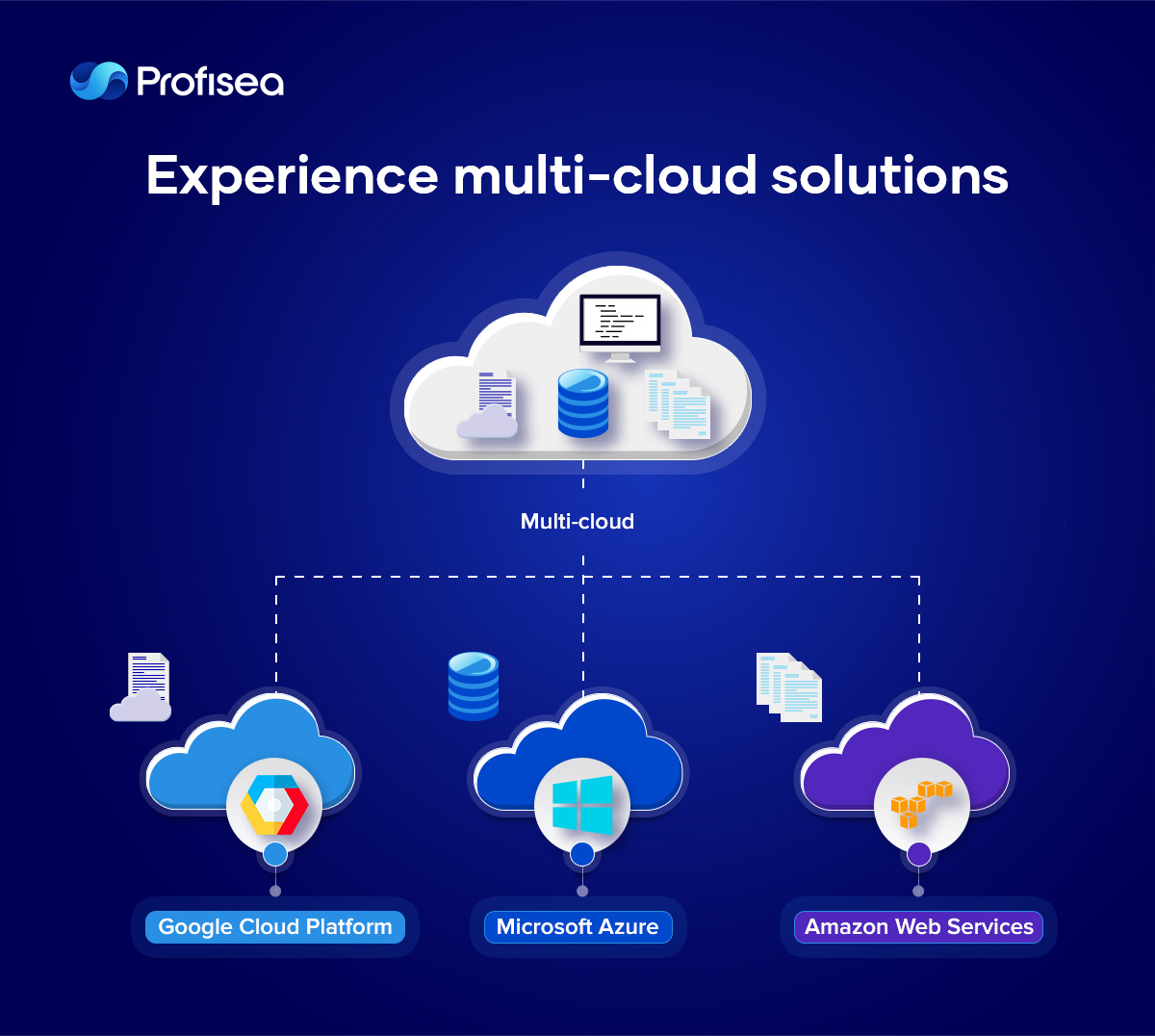
Create Microservices Architecture
As a model for organizing computer systems, a microservices architecture gains popularity, and this trend is expected to reach its peak in 2023. It is the next step of service-oriented architecture (SOA) evolution, which structures an application as a set of related services. If one application fails, microservices make it easy to identify and localize the problem without disrupting the system.
With a microservices architecture, a company can substantially reduce network traffic. The time it takes to scale shrinks from weeks to minutes.
Only top DevOps experts can create the ideal microservices architecture that enables rapid innovation of your business. As a result, you will get control over the technology stack and standards, performance metrics, development, release cycles, etc., which will reduce the overall time to deployment by shortening software release intervals.
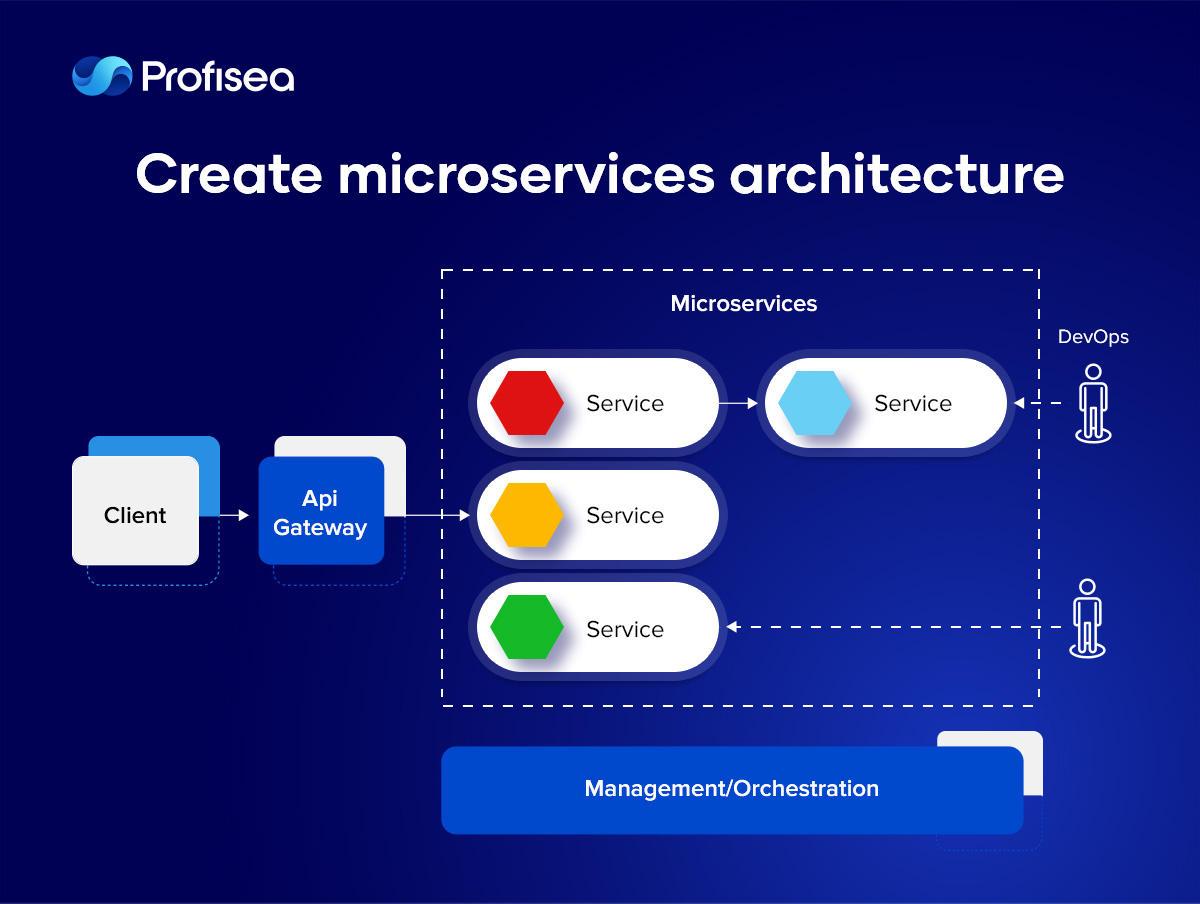
Adopt CI/CD
Recently, a new CI/CD philosophy has emerged. It changes DevOps processes, improving development productivity and ensuring governance and security. This new paradigm is based on three main principles: open platforms, intelligent automation, and autonomous teams with centralized management.
Open platforms provide seamless integration with existing CI/CD tools and workflows. It enables companies to grow without disrupting existing tools and processes and without risking a significant decrease in development productivity. Intelligent automation meets many essential requirements for successful software delivery. Establishing centralized controls is critical to ensuring that the company’s DevOps, security, and compliance teams are consistent and auditable across all software releases.
Ignoring these basic principles results in software integration and delivery problems that cause slow releases, unexpected errors, security and compliance failures, and user and customer frustration.
Professional DevOps teams use the best tools and solutions to configure well-architecture pipelines and perform incremental deployments that guarantee faster releases.
Apply GitOps Methodology
GitOps, an infrastructure trend related to the well-known Kubernetes (K8s), allows developers to use Git to manage clusters and deliver efficient, secure applications without misconfigurations. It automates the release of incremental updates.
Thus, consistent delivery allows DevOps teams to build, test, and deploy software quickly. Thanks to GitOps, companies increase production speed by 68% in real-time conditions.
GitOps is a logical evolution of the Infrastructure as Code (IaC) approach and DevOps best practice, where Git serves as the single source of authority and control mechanism for creating, updating, and deleting system architecture. The GitOps methodology can significantly increase the productivity of a DevOps team. This is an incredibly powerful tool because it allows you to use Git functions in complex infrastructure.
Professional DevOps companies implement a Kubernetes-based paradigm for merging and deploying various applications. GitOps leverages best DevOps practices, including version control, compliance, and well-designed CI/CD, and adopts them to infrastructure automation.
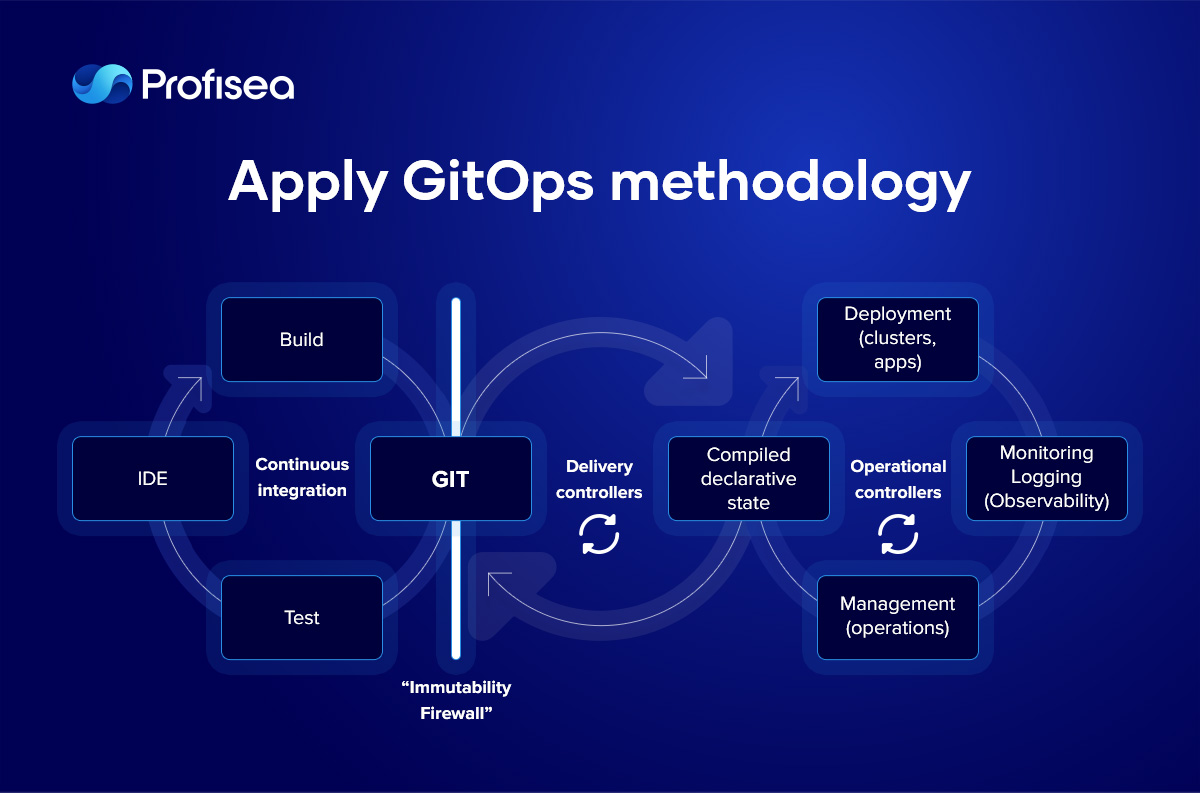
Reduce Cloud Costs
Cloud services have different pricing and billing models, and their costs may also vary from month to month. As they become more and more popular, price continues to rise.
As resource-intensive and mismanaged Cloud infrastructure is to become a great Cloud/DevOps challenge in 2023, companies of any scale desire to find best FinOps solutions. As of 2022, 43% of CTOs, 24% of CIOs, and 17% of CFOs work with a FinOps team in an enterprise-level organization.
Only truly innovative and professional DevOps companies can support your business in obtaining detailed information about Cloud costs and provide unified cost management solutions. Cooperating with different teams to find a balance between speed, cost, and quality, FinOps experts will carefully research your Cloud architecture, resource usage, and wastes, implement a loss tracking system, identify multiple resource losses and, as a result, significantly reduce Cloud costs by 80%.
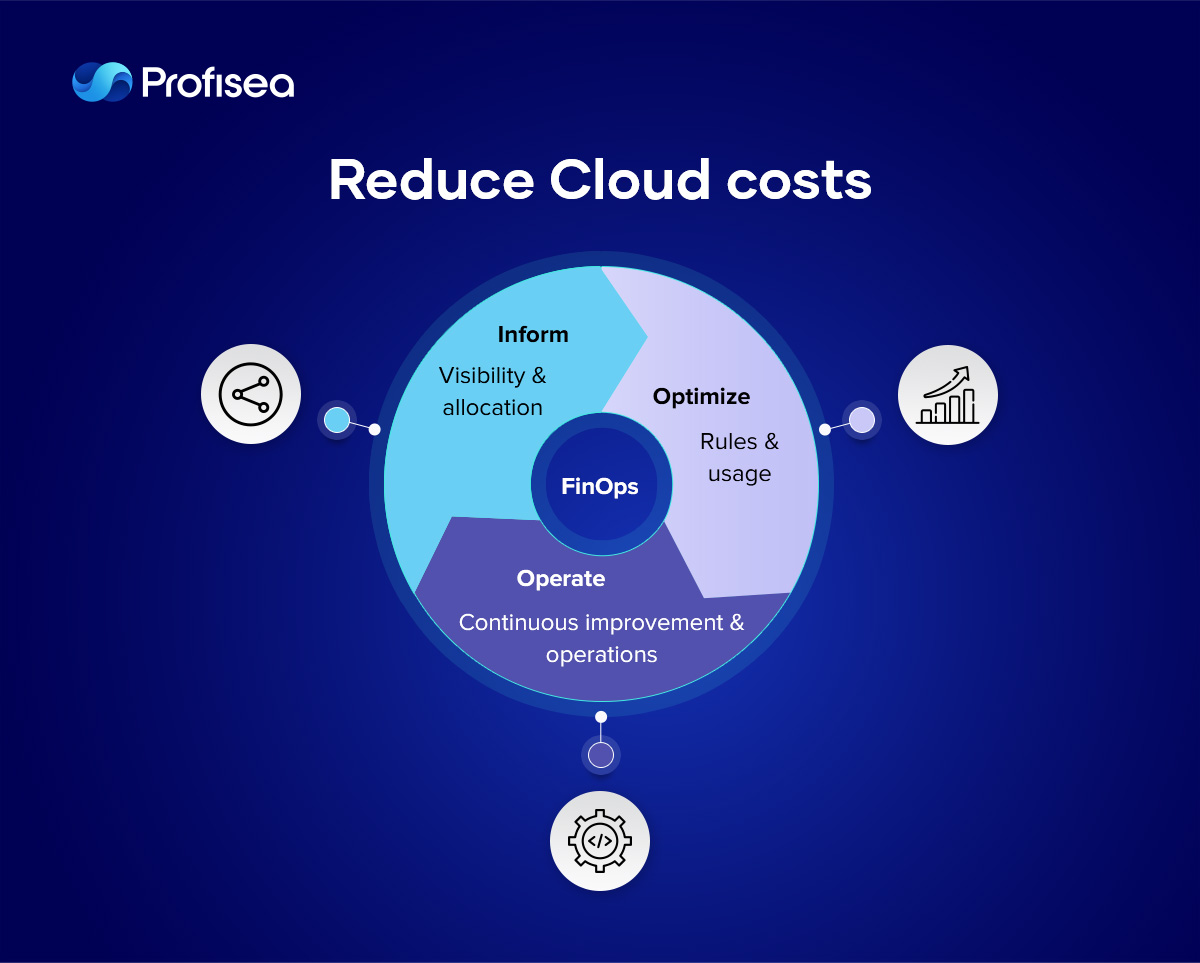
Implement Chaos Engineering
Chaos engineering is on the top list of DevOps trends because of its significant benefits, such as reducing security risks, providing a deeper understanding of application operating patterns, reducing maintenance costs, and increasing opportunities to provide a better customer experience.
Gartner predicts nearly 40% of DevOps companies will implement chaos engineering by 2023, because this approach helps to deal with complexity, building robust applications that support business processes.
The main idea of chaos engineering is to induce random crashes on purpose to force applications to behave differently and break down under enormous circumstances. After the application fails, DevOps engineers analyze and identify the root causes of problems and resolve them before rolling out production.
Continuous testing, improvement, and reliability are at the core of unique DevOps practices, and chaos engineering aims to implement automatic recovery mechanisms and increase your product fault tolerance.
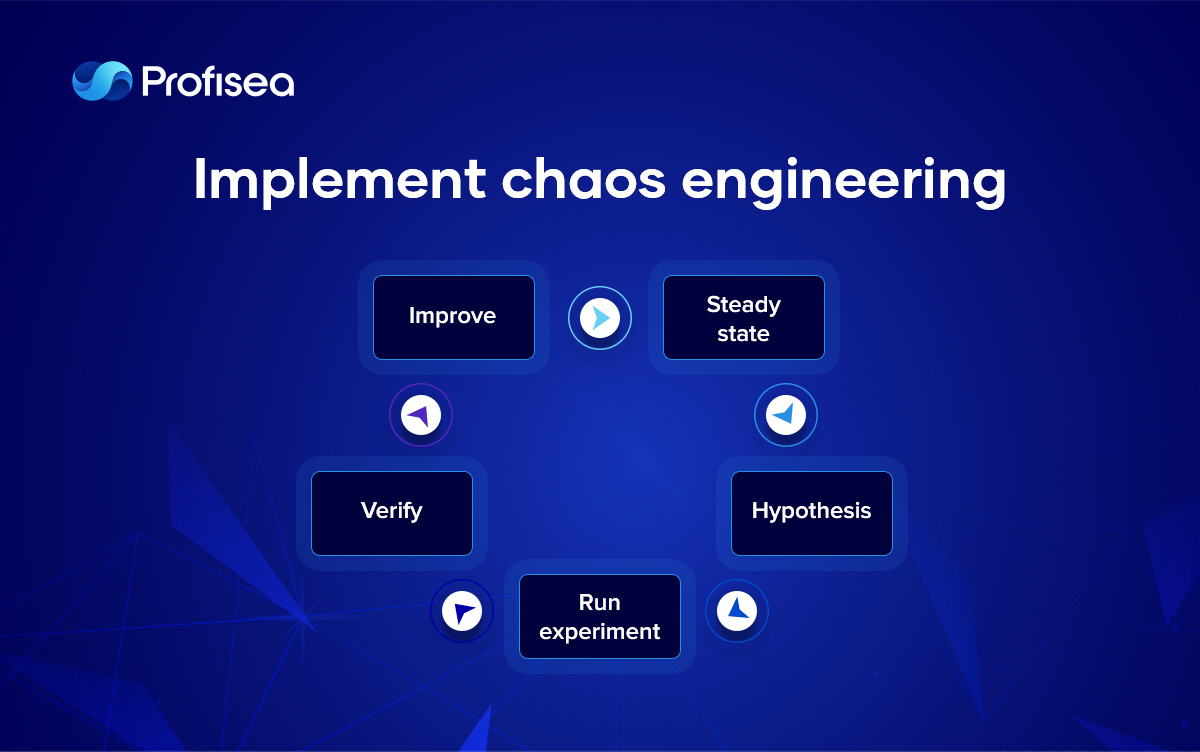
Provide Intelligent Cloud Security
Intelligent Cloud security becomes even more of a priority over the coming year. As many companies look to cut costs, the focus is to be on finding innovative and cost-effective ways to maintain secure SDLC processes.
Thus, in 2023, we will face an outburst of intelligent technologies designed to detect threats before they cause problems. API security tools and streamlining security operations will dominate in three main fields: threat and vulnerability management, incident response, and security operations automation.
Secure-as-a-Service will move security to the left in DevOps workflows, implementing applications for AI assistance, e.g., bot comments on code pull requests, fixes for infrastructure-as-code security vulnerabilities, a spell checker within the IDE, etc.).
To gain insight into where the real security challenges and opportunities live, you need DevSecOps experts that look across all aspects of the delivery pipeline. Otherwise, your results can be a bit short-sighted.
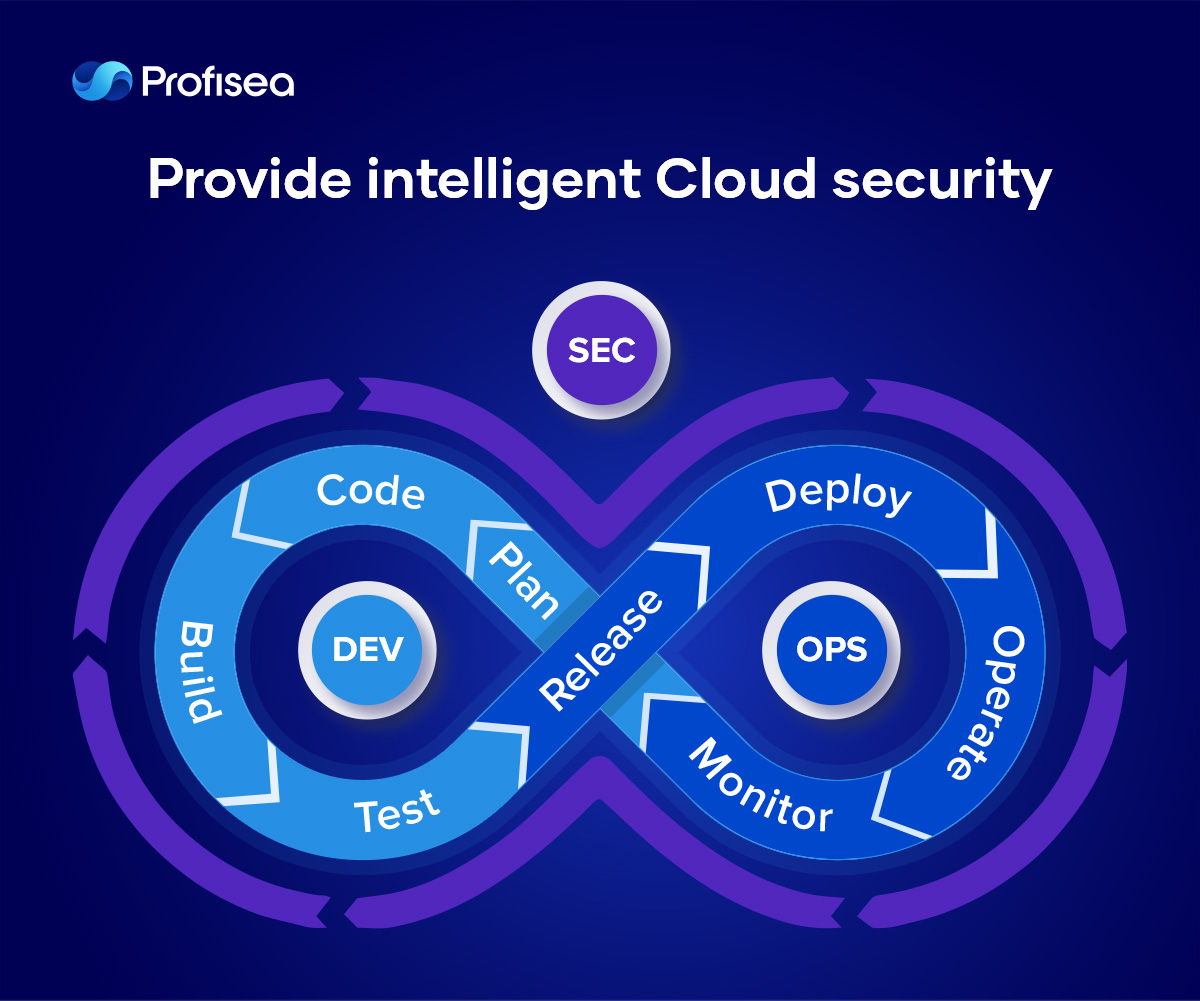
Overcome Cloud/DevOps Challenges 2023
As businesses continue to evolve with Cloud solutions in 2023, a major Cloud/DevOps challenge is an urgent need for experts who specialize in executing particular use cases and consistently solving new challenges.
Top Profisea DevOps experts always take care of Cloud computing and the very specific needs of your business, like security, data storage, visibility, AI and ML technologies, costs, and much more.
Profisea understands how Cloud computing technologies work and how to get the best Cloud/DevOps solutions for specific business needs to expand the company’s ability to design, produce, launch and maintain high-quality software faster.
